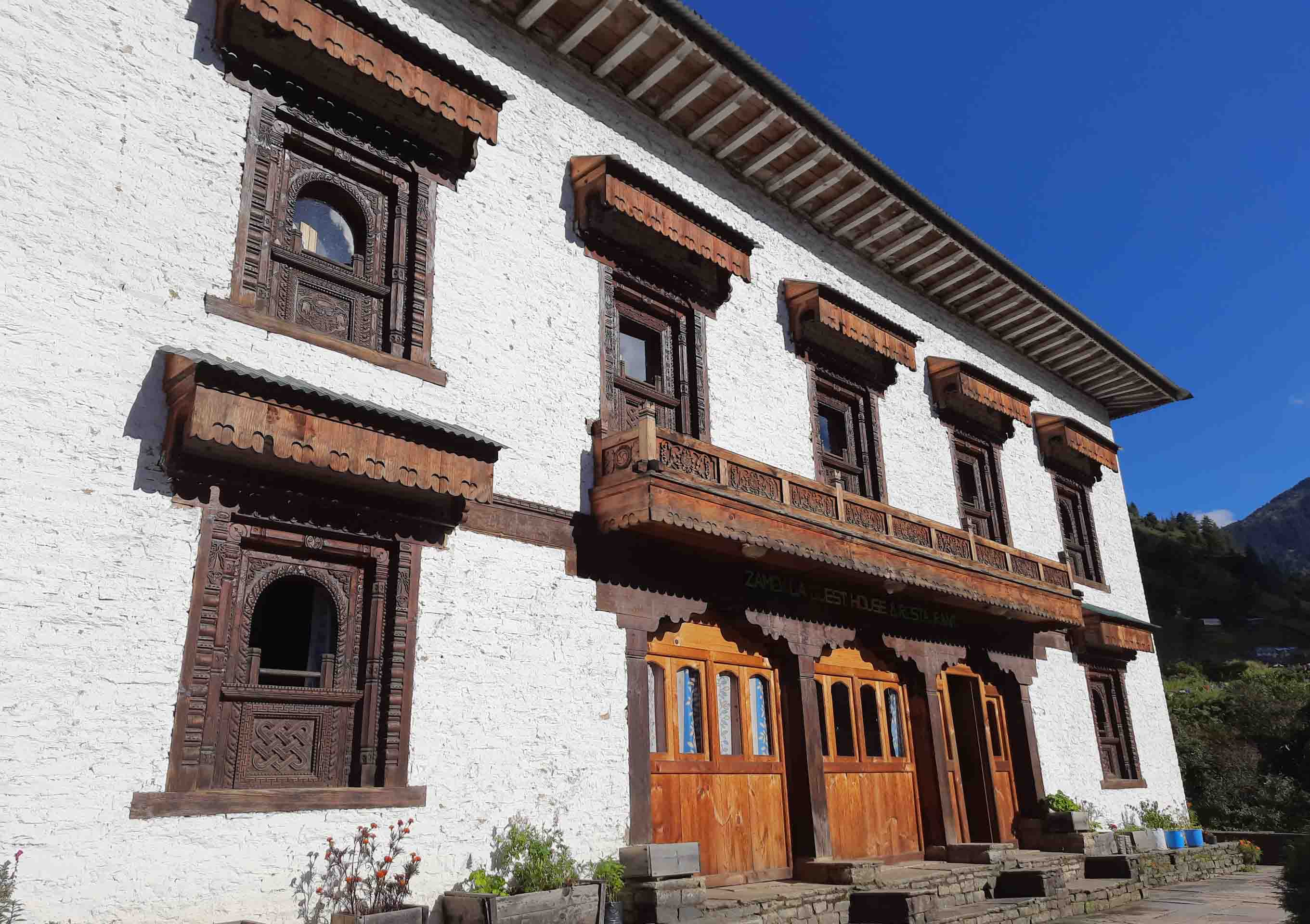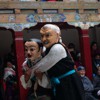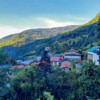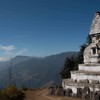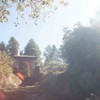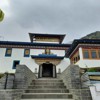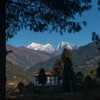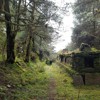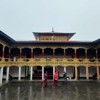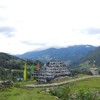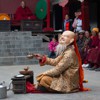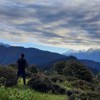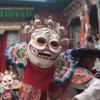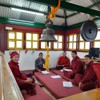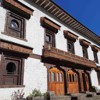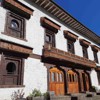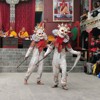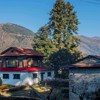Junbesi Retreat - 4 Days
Unknown
NPR 21,999
Flexible Cancellation Policy & Fair Prices
Includes Both way Flights Kathmandu & Phaplu Local transfers Room with private bathroom 3 Breakfasts Trekking guide from Phaplu
INR 24,999
Flexible Cancellation Policy & Fair Prices
Includes Both way Flights Kathmandu & Phaplu Local transfers Room with private bathroom 3 Breakfasts Trekking guide from Phaplu
USD 599
Flexible Cancellation Policy & Fair Prices
Includes Both way Flights Kathmandu & Phaplu Local transfers Room with private bathroom 3 Breakfasts Trekking guide from Phaplu Porter Service
HIGHLIGHTS
- Unwind at Junbesi, one of the most idyllic and peaceful villages in the Lower Everest Region.
- Explore some of the oldest and largest monasteries of the Everest Region- Chiwong Monastery, Junbesi Monastery, and Thupten Choling.
- Get a panoramic view of the mountains including Everest from Ratnange Dana above Phaplu.
QUICK FACTS
- Difficulty LevelEasy
- Total Length35 km
- Highest Altitude3,100 meters
- Elevation Profile
- Start locationKathmandu
- Finish locationKathmandu
- PermitsNone Required
- Best SeasonMarch-May & August-January
DESCRIPTION
If there is one place that is perfect for a quiet retreat, it is Junbesi. Legend has it that even the moon comes down to Junbesi when it gets tired! Actually the name Junbesi comes from two words Jun = Moon and Besi = Lower Valley.
Tucked quietly in a side-valley and filled with ancient monasteries, kiwi fruits, and mandarin trees, Junbesi is the prefect place for your family to disconnect from the world and reconnect with each other.
Along the way, you will also explore the 400 year old Junbesi Monastery and Chiwong Monastery, see Mount Everest from Ratnange View point and experience the unmatched Sherpa hospitality.
WHY HONEYGUIDE?
~ Specialized in Everest - From dropping cyclists at Kala Patthar to classy New Year events, we have done some exciting things in Everest. ~ Travelers’ Choice Award 2022 by Tripadvisor - Also, we only use hotels that are highly rated on Tripadvisor. ~ Understand Everest inside out - Extensive online resources and deep community involvement. ~ Only Online Travel Agency in Nepal- Option to book Treks & Heli Tours / Flights / Hotels / Trekking Guides directly. ~ Love the Mountains and are fun to talk to.
If you have any questions, feel free to Call / WhatsApp / Email Bimmi OR Fill out an Enquiry Form.
DETAILED ITINERARY
Day 1: Kathmandu - Phaplu - Junbesi
~ Fly Kathmandu to Phaplu - 20 min. ~ Drive to Junbesi - 1 hour. ~ Explore the village of Junbesi and its monasteries. ~ Overnight at Junbesi. Accommodation: Zambala Guest House or similar
Day 2 : JUNBESI - THUPTEN CHOLING MONASTERY - JUNBESI
~ Take a leisurely walk to Thupten Choling Monastery - 2 hours ~ Overnight at Junbesi Accommodation: Zambala Guest House or similar
Day 3: Chiwong Monastery - Ratnange Danda - Phaplu
~ After breakfast, drive to Chiwong Monastery. - 1 hour. ~ Hike to Ratnangi Hill - 3 hours ~ Enjoy the mountain view of Numbur, Karyolung and even Everest from the hilltop. ~ Walk back to Phaplu. Accommodation: Kyirmu Lodge, Phaplu or similar
Day 4 : PHAPLU - KATHMANDU - 30 min
~ Fly Phaplu to Kathmandu
CONTACT
If you have any questions, feel free to Call / WhatsApp / Email Bimmi OR Fill an Enquiry Form.
We will happily tweak this tour to your liking. Some possible changes are: ~ Book rooms with attached bathrooms where possible - approx. USD 10 per night per person. ~ Add hotel and/or city tour in Kathmandu - approx. USD 100 per person. ~ Include meals and hot water - approx. USD 35 per day for three meals + hot water.
INCLUSIONS AND EXCLUSIONS
Includes
~ Two way flights between Kathmandu to Phaplu ~ Local transfers ~ Sightseeing tour as mentioned in the itinerary ~ Accommodation on twin sharing basis ~ 3 Breakfasts ~ Trekking guide from Phaplu
Excludes
~ Lunch and Dinner ~ Tips for Guides and Porters. (~15-20% of their wages. Porter wage = NPR 1,800 per day) ~ Insurance, Medical or Rescue Coverage. ~ Anything not included in inclusions.
Essential Information on Everest Region Altitute Illnesses / Best Time for EBC / Packing List / Difficulties / Accommodation / WiFi, Mobile Network, and Electricity / Food and Drinks / Permits / Maps / Lukla Flights
Other Information on Everest Region Mountains / Festivals / Sherpa Food / Wildlife / Flowers / Birds / Photo op Spots / Lakes / See All Posts about Everest
FAQS
Traveling to the mountains poses some inherent risks. As such, the best strategy is to prepare for the worst and then hope for the best.
PRE-EXISTING CONDITIONS
The first thing to keep in mind is to see if you have pre-existing conditions that could cause complications at high altitudes. Specifically, suppose you have sickle cell disease, pulmonary hypertension, obesity hypoventilation syndrome, or congenital heart problems. In that case, we highly recommend you consult with a qualified physician before planning a trip to the mountains. Read more.
ALTITUDE-ILLNESS
Given the low amount of oxygen at high altitudes, a sensible ascent is essential to give your body the time to acclimate to the thin air. Failure to do so can lead to your lungs or brain filling up with water leading to death in some cases. The key is not to climb more than 500 meters in one day once you pass the 2,500 meters mark. Read more.
ENVIRONMENTAL HAZARDS
Given the extreme weather in the high mountains, proper gear and regimen must have a safe and comfortable tour. The three most important things that you have to prepare for are cold, snow, and radiation. As such, invest in the right sunglasses, sunscreen, boots, and clothing. Read more.
TRAVEL INSURANCE
We highly recommend everyone get travel insurance covering high altitude evacuation before leaving on a trek to the high mountains. Global Rescue and World Nomads are both highly recommended. For Nepali travelers, please note that insurance that covers helicopter rescue is not available as of now. As such, please be careful while planning your tour and only work with companies that can provide timely evacuation service if needed.
RESCUE AND EMERGENCY
As health facilities are limited in the mountains, a helicopter's evacuation is usually the only option during an emergency. As such, the right insurance provider is essential. If you are not buying insurance for some reason, please ensure that there is someone in Kathmandu who can coordinate payments for a helicopter rescue. Here are some other contacts that might come in handy during an emergency. If you still have questions, please feel free to call / whatsapp us at +977-9801916215 or email Ashish at nectar@honeyguideapps.com
HOW DO I MAKE A PAYMENT?
To confirm your tour, you will have to make complete payment either through one of your integrated payment gateways or transfer the funds to the following bank accounts:
For Nepali citizens:
Account Name:: HoneyGuide Pvt. Ltd. Beneficiary Bank: Himalayan Bank, Patan Branch Account Number: 00606903770018For Indian Citizens:
For USD transfers
Account Name: HoneyGuide Apps, Inc. Bank Name: Silicon Valley Bank Account Number: 3302225311 Swift Code: SVBKUS6S ABA Routing Number: 121140399BOOKING A TOUR
Deposit Required for Reservation: 50 percent of total tour cost Deadline for Full Payment: 2 weeks before the tour begins
CHANGING A TOUR
Two weeks before tour date: No extra charge 1 to 2 weeks before tour date: 10% additional charge Two days to 1 week between tour date: 20% additional charge Within two days of tour date: Above 30% (variable)
CANCELLING A TOUR
Two weeks before tour date: No charge (transaction charges may apply) One to two weeks before tour date: 20% Cancellation Charge Two days to one week between tour date: 50% Cancellation Charge Within two days of tour date: No Refund.
DELAYS AND CHANGES DURING THE TOUR
In case of flight delays/cancellations due to bad weather or unforeseen circumstances, HoneyGuide will change the dates at no additional costs. However, any extra cost incurred, including but not limited to accommodation and food, will be the responsibility of the traveler.
In case of changes due to the trekker's health issues, HoneyGuide will make all the changes without any additional cost. However, any extra charge because of the changes will be the responsibility of the traveler.
While Nepal's mountains see six seasons, the best period to go to the mountains is from March-May and September-December. However, every season has its quirk, just like people. So keep reading to find your match.
For those going to Everest Region, do check out the Best time to go to Everest post.
January/February (Winter)
January/February is a good time for trekkers willing to brave the cold and snow for empty trails, fantastic mountain views, and wildlife sightings.
March/April (Spring)
This is a period that offers a little bit of everything: a little bit of mountain view, a little bit of warm weather, a little bit of flowers, a little bit of crowd, and a whole lot of fun.
May/June (Summer)
This is the best time for those into nature. The flowers are quite something this time of the year, and the bird activity is fantastic. The monsoon hasn't started, and as such, mornings are still clear with beautiful mountain views.
July/August (Monsoon)
Only for hardcore trekkers who are willing to put up with the elements for an authentic cultural experience and high altitude flowers. Also, flight disruptions are very likely, and chances of mountain views are close to zero.
September/October (Fall)
This period is everyone's darling, and the trails are as crowded as they can be. The mountain views are something to write home about, and the temperature is just perfect.
November/December (Pre-Winter)
Another popular period among trekkers and the driest two months in the calendar. Indeed it has gotten a bit nippy during the mornings and evenings, but it is still manageable. Count on a lot of sunshine and crystal clear mountain views.
